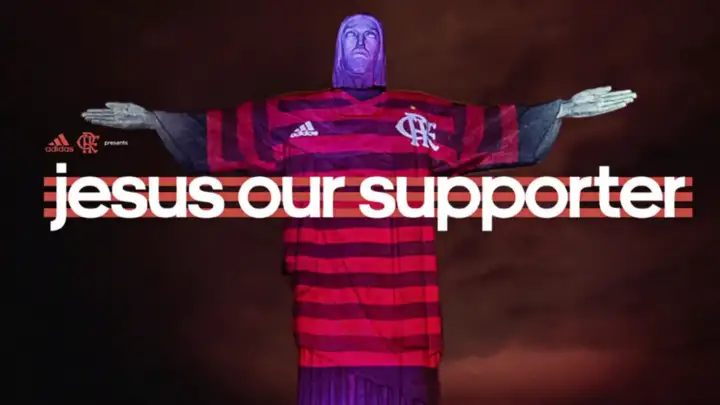Beyond the Relationship: A Brand as A Religion — SMP&CO Strategy Review

Think about the perfect relationship with the person of your dreams. When you first laid eyes on them, did sparks fly? Do they listen patiently when you rant about trivial things or hand you a steaming cup of coffee first thing in the morning after noticing you stayed up late last night?
A good brand should check all the boxes you have for the perfect soulmate. They just get me and offer what they think I want. The brand differs from the product whereas the brand is the intangible link between a company and the consumer where there is always room for improvement. If you contextualize a brand as a relationship, then it is not just throwing a barrage of advertisements in hopes that something will stick, but rather an emotional investment that takes time to nurture and sustain.
With more of the younger generation joining the workforce and earning disposable income comes a larger sales opportunity. However, these young people are more perceptive and wary towards the advances of conglomerates to market to them. The product simply cannot stand on its own. There has to be a strong compelling reason why they should patronize a certain brand whether aesthetic, advocacy, or message. Successful brand campaigns geared towards these young people have one thing in common: authenticity. Give them something to root for. Let them be part of a bigger and brighter narrative and only then will they gravitate towards you.
Now what?
So you have established an authentic relationship with your target consumer and gave them a cause to fight alongside your product. You, as a brand, can take it a step further and turn this relationship into a deeper connection — a religion of sorts. Brand religion cajoles emotive responses from a follower who is fully ingrained physically, mentally, and sometimes even spiritually, in the said religion. Brand equity is continued interest, but brand religion is a profound belief and lifestyle.

In the marketing world chock-full of formulaic buzzwordy adverts, brand religion rejects the norm. It rebels against the system. For example, in a highway of gas-guzzling vehicles, the morally superior Tesla-owner can feel that they stand out. Again, you have to give the consumer a cause to root for and show that your brand goes against the iterative normal. In February 2020, Burger King released “The Moldy Whopper” advertisement that showcases the decay progress of their titular hamburger after being left out for 34 days. The raw sight of green fluffy mold elicits a visceral reaction, and it could have backfired by consumers being too put off eating lunch at a nearby Burger King. They impressively managed to subvert the expectation for cheap processed fast food and, at the same time, implicitly taking shots at their rival, McDonald's, whose food has come under scrutiny for not decomposing even after several years. Rebellious brands create the in-crowd and the outsiders; who is in the wrong and who is right.
Brand religion also uses emotional investment to hook their recruits and make them stay in their community. A product can perform well and make life generally easier, but without the heart of the consumer attached to the brand, it’s just one of many nameless items out there. A great example is Adidas’ “Jesus our Supporter” ad campaign back in November 2019. In Latin American, soccer and religion are a great chunk of the residents’ lives. When the Brazilian team Flamengo went against the Argentinian team River Plate, the Christ the Redeemer statue in Brazil was swathed in a Flamengo Adidas jersey to show support. A striking and reverent balance between the love for soccer and religion. Reactions among Brazilians were explosive with fans all clothed in Adidas jerseys clutching statuettes of Jesus during the final game. Brazilians were borderline hysterical when Flamengo won the game, believing that Jesus in the Adidas jersey blessed their home team to win. Anchoring your brand during an emotional event is situating yourself in the hearts of your consumers who will look back at this memory fondly.

Of course, a religion would not be complete without its loyal followers. A brand religion has a solid group of diehards who reinforce each other’s fanaticism. Each member affirms the other’s belief in the brand. For example, long lines usually deter shoppers from purchasing an item somewhere. However, when a group is deep in brand religion, standing in line for half a day is no problem. The streetwear brand Supreme releases items one drop at a time, and the line for these drops stretch around for miles. Mind you, the items aren’t being given out for free. In fact, the prices of these items are exorbitant, but Supreme fans are willing to wait in line because they can talk to fellow hard-core followers of the brand. The limited quantity of items being sold also contributes to the feeling of exclusivity; being a part of a secluded club where you can gloat to each other how lucky you are to nab an item. The strength of a brand religion is supremely dependent on the tight-knit community.
Establishing a brand religion takes elements from religious practices: rejecting the normal in favor of rebellious practices, locking in members through deep emotional investment, and feeding a perception of exclusivity through tightly-knit communities. Your brand shouldn’t just be a summation of touchpoints that come and go. A brand is a relationship that requires time, authenticity, and a carefully crafted identity that, if done right, will carry your brand into a greater realm of devotion.



